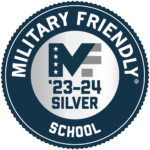
Practical Nursing Program (Diploma -
1 Year Program)
The Practical Nursing (LPN) Program provided by the Ohio Business College is 44 weeks or four quarters long. The LPN program covers a combination of theory, nursing skills lab, simulation lab, and clinical experiences. Once you graduate from the LPN program, you will be fully qualified to write to the NCLEX-PN® to become licensed as an LPN in Ohio and 38 additional states as part of the Multi-State Compact License.
Disclaimer: The Practical Nursing Program is now offered at the Lorain County campus and is currently pending approval by the Ohio Board of Nursing and Commission of the Council on Occupational Education.
Admission to the OBC Practical Nursing Program
If you intend to enroll in Practical Nursing School at Ohio Business College, you must meet several requirements. For example, you must pass a criminal record check and drug screen, have at least a 2.0 grade average in any previous academic work, and meet or exceed the currently required score on the entrance assessment. A few other initial steps you will take to get enrolled include:
- Apply for admission to Ohio Business College
- Visit our Lorain County Campus
- Complete your application and submit the admission fee
- Provide OBC with high-school transcripts, GED certification, and prior college transcripts
- Meet with a representative from admissions at OBC
- Meet with a financial aid administrator
- Complete your entrance assessment
- Complete health screenings and submit records
- Schedule classes, order textbooks, and attend orientation
What Does a Licensed Practical Nurse Do?
Ohio Business College's nursing program offers a Practical Nursing diploma and the skills needed to pass your National Licensure Examination for Practical Nurses (NCLEX-PN®) to obtain your LPN license. LPNs work under the direction of a licensed physician, physician’s assistant, nurse practitioner or registered nurse. As an LPN, you will be capable of performing essential nursing skills within a healthcare setting including:
- Maintaining patient records
- Initiate, support, and monitor IVs within the LPN Scope of Practice
- Provide Individualized patient care
- Documenting patient health attributes after observation
- Assisting with procedures and tests
- Utilize medical technology and equipment to provide individualized patient care
- Work as part of a healthcare team to provide quality care to patients and their families
- Administer medications and treatments
An LPN's job role and the tasks involved can vary depending on the setting and scenario. You may be tasked with administrative duties, assisting supervisors, or providing patient care directly.
Skills and Essential Abilities Required in Practical Nursing School
Much like when you arrive in your eventual career, your time spent in Practical Nursing School will require specific cognitive, academic, and physical abilities. Having these abilities can make it easier for you to complete the Practical Nursing program, but would also make it easier for you upon graduation once you enter a career role. A few of the abilities a prospective nursing student should possess include:
- Working in a team setting, collaborating with members of the health care team to make safe decisions, and applying clinical judgment under stress
- Coping with patient demands and clinical situations that can be high risk to both patients and staff members
- Sitting, standing, and walking for long periods
- Tolerant of strong odors and visibly unpleasant situations
- Ability to carry, lift, or even push and pull up to 50 pounds
- Provide compassionate and individualized patient care to diverse patient populations
- Communicate clearly to engage in professional dialogue
Practical Nursing Curriculum
The fast-track Practical Nursing Program at Ohio Business College is 69 full credits with 450 clock hours in Theory, 420 clock hours in Clinical, and 240 clock hours in Skills and Simulation Lab. Each quarter in the four-quarter program is 10 weeks long with an 11th week reserved for make-up learning and final exams. Below is a brief overview of the LPN courses required to obtain your Practical Nursing diploma.
Quarter 1
PN 101 Anatomy & Physiology for the PN I
PN 102 Clinical Judgment for the Practical Nurse
PN 103 Fundamentals of Practical Nursing I
PN 104 Practical Nursing Care of the Elderly
Quarter 2
PN 201 Anatomy & Physiology for the PN II
PN 202 Calculating Dosages for the Practical Nurse
PN 203 Fundamentals of Practical Nursing II
SS 102 Psychology
Quarter 3
PN 301 Practical Nursing Care of the Reproducing
Family
PN 302 Practical Nursing Care of Children
PN 303 IV Therapy for the Practical Nurse
PN 304 Practical Nursing Care of Adults I
Quarter 4
PN 401 Mental Health Practical Nursing
PN 402 Practical Nursing Care of Adults II
PN 403 Preparation for Practical Nursing Practice
Each of the nursing courses will expose you to a specific fundamental aspect of providing care as a practical nurse. For example:
- Clinical Judgement for the Practical Nurse helps you think like a nurse using critical thinking and strategies to administer care safely in the healthcare environment
- IV Therapy for the Practical Nurse exposes you to intravenous therapy, psychomotor skills used, and hands-on learning initiatives
- Practical Nursing Care of the Elderly Patient gives you the fundamental concepts to understand the nuances that can come along with working with elderly patients
Every new LPN course offers a unique opportunity to hone your knowledge base and skills that you will apply later in your career.
Future Outlook of the Practical Nursing Career
Once you train to be a nurse with a fast-track nursing training program at the Ohio Business College, you are equipped to step into a career in high demand. According to the Bureau of Labor Statistics Occupational Outlook, a growth of 9 percent is expected between 2022 and 2032, which equates to adding around 34,900 new jobs in addition to the 655,000 already available. Some of that demand is expected to be driven by LPNs who move up to different occupations, retire, or otherwise leave their positions.
Changing demographics signal a need for more LPNs to care for the aging population. It has been estimated that the ratio of potential caregivers to the people most likely to need care, the elderly population, will decrease significantly by 2032. The result of this is employers needing help seeking skilled LPNs.
Career Opportunities with a Practical Nursing Diploma
Upon completion of the LPN Program and successfully passing your NCLEX-PN, you can work in a wide variety of healthcare settings, including:
- Hospitals
- Long-term care facilities
- Assisted-living facilities
- Public school systems
- Correctional facilities
- General and Specialty Clinics
- Home Health
- Hospice Programs
Many nurses enjoy the vast career opportunities their licenses afford them and take advantage of exploring multiple roles and healthcare settings throughout their careers.
Ready to get started on your path toward a diploma in Practical Nursing? Let us help you prepare for your future career! Request more info here to help you get started.

